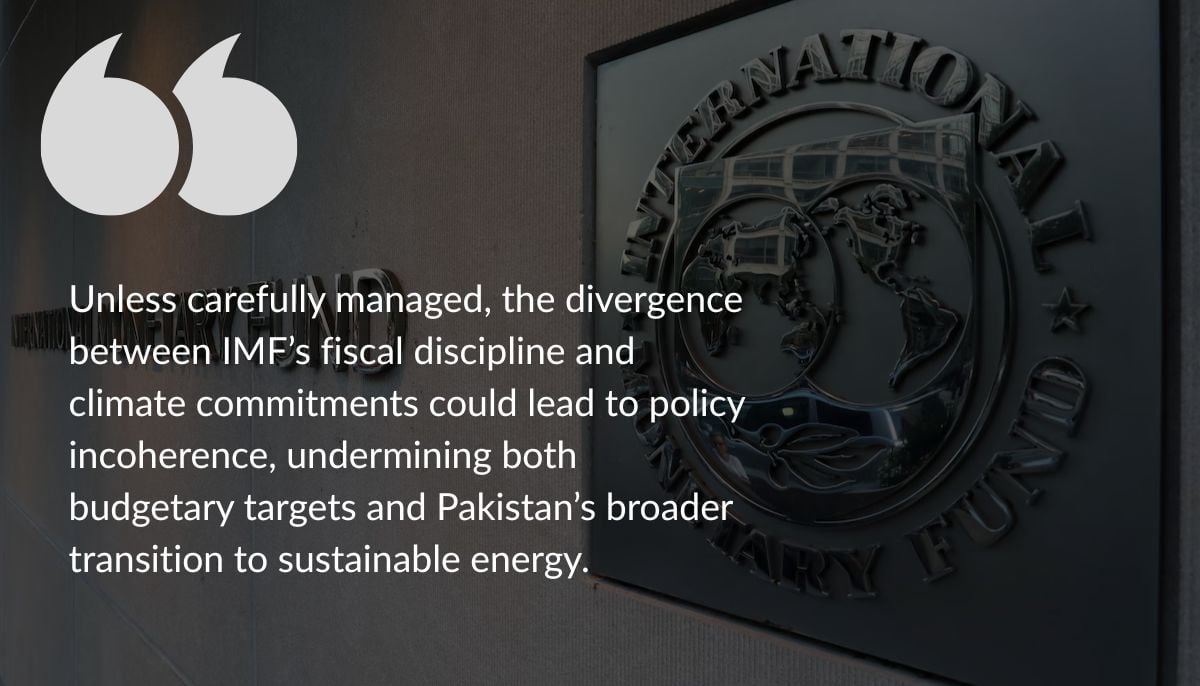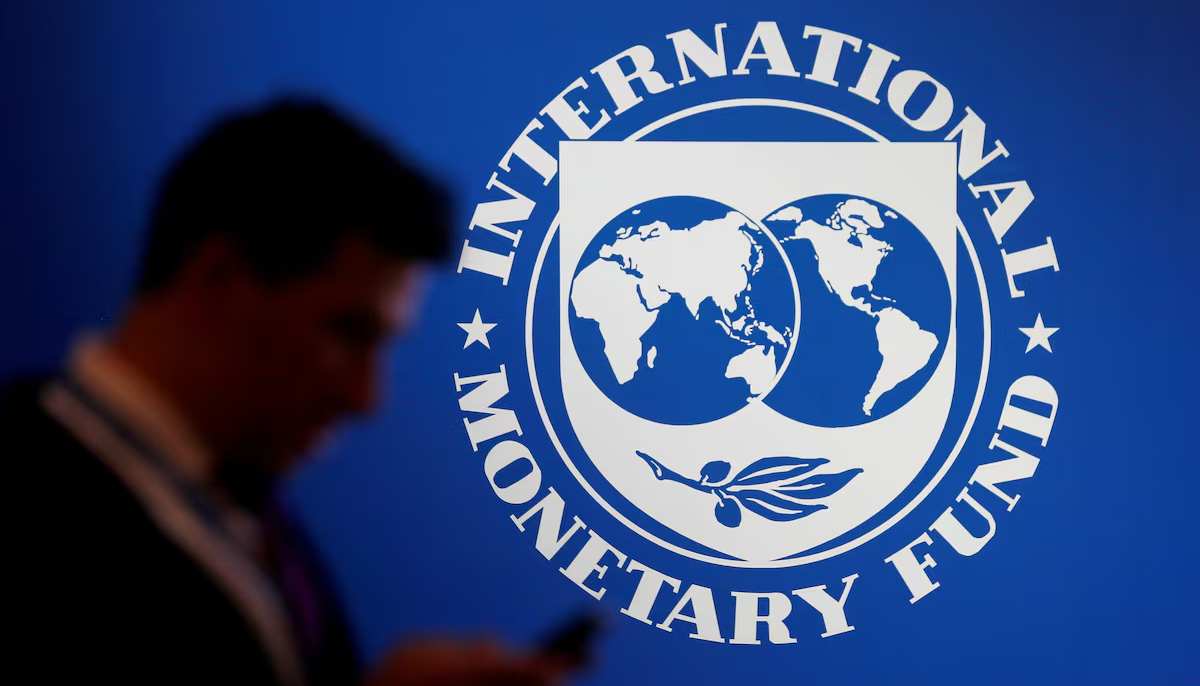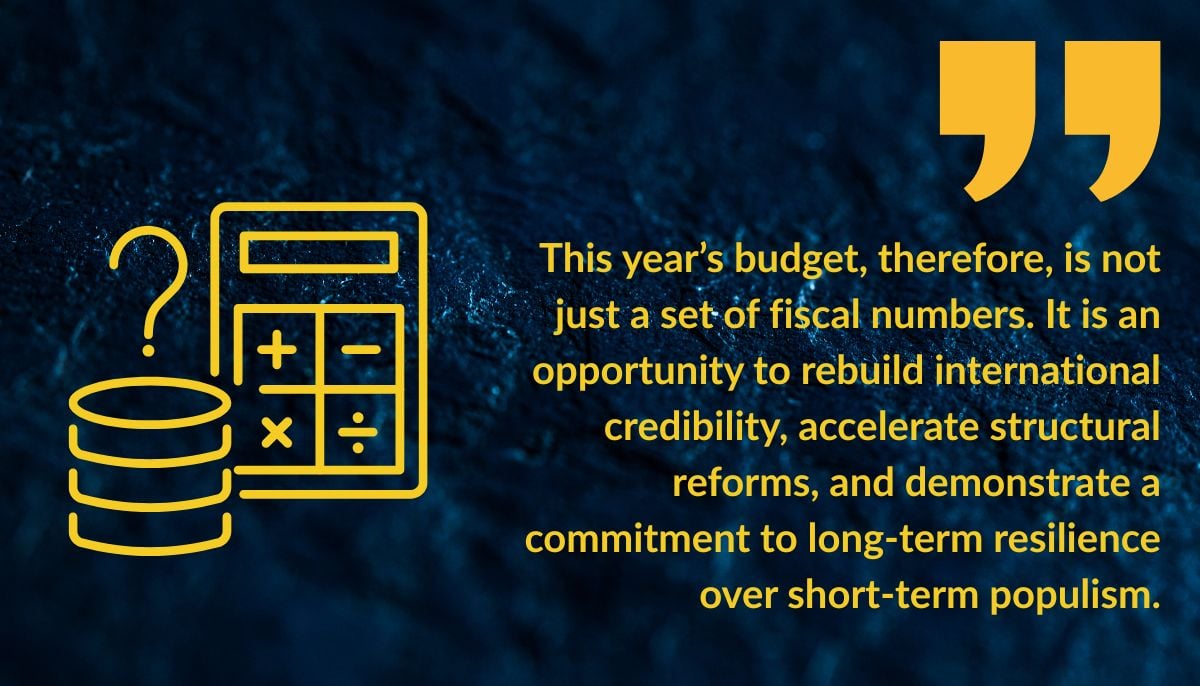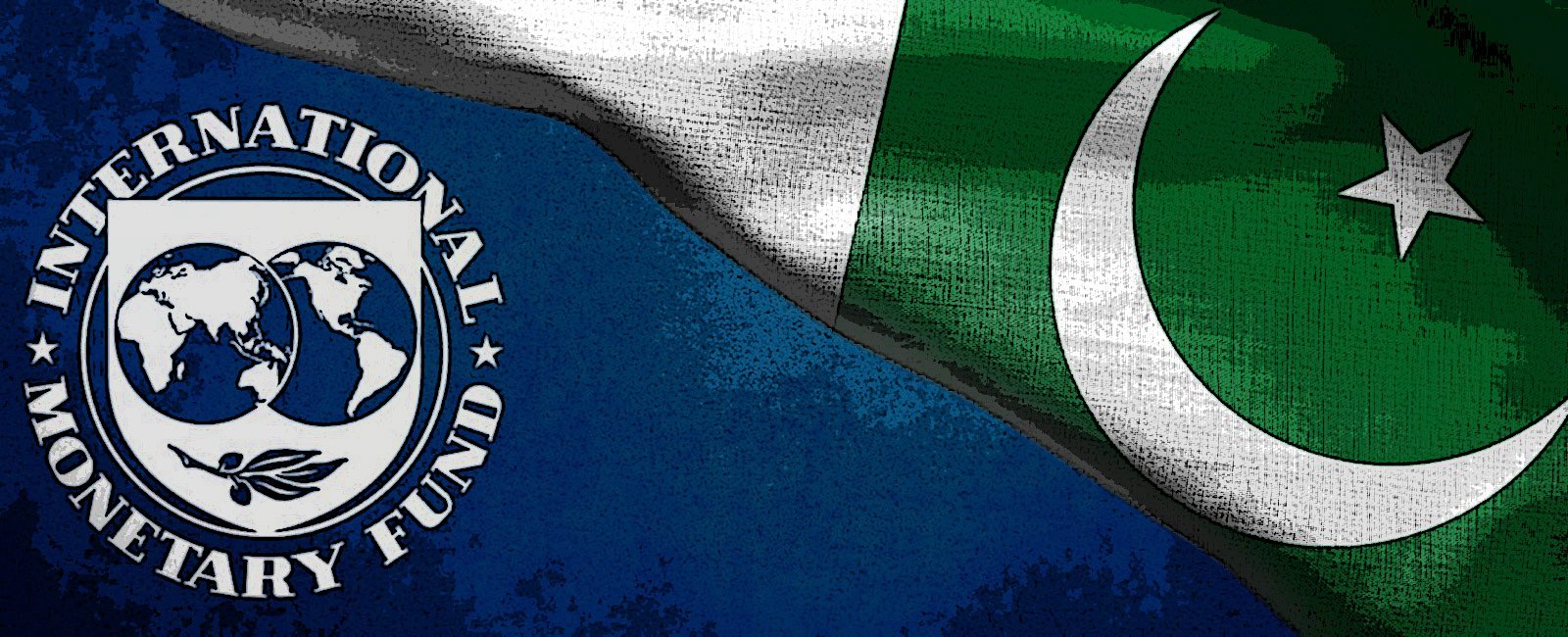Budget FY26: Between IMF imperatives and national priorities
Can govt find political courage to implement a just and sustainable budget, not just craft a clever one?

Historically, the annual ritual of Pakistan’s federal budget announcement has remained marked by jargon-heavy speeches, figures that few understand, and promises that rarely materialise. For years, budgeting under an IMF program followed a predictable, if flawed, template: inflate revenues, understate expenditures, and meet the fiscal deficit target agreed with the IMF, at least in papers. However, for the last few years, things have been slightly different. How, before coming to that, let me explain why?
In the past, Pakistan repeatedly breached its commitments under IMF programs, often prioritising political expediency over fiscal prudence. These violations eroded trust between the Fund and Pakistani authorities, prompting the IMF to shift towards “front-loaded” disbursements, tying even the release of initial tranches to demonstrated implementation of agreed commitments. A case in point: outgoing federal budget figures were publicly contested by the IMF and had to be revised even before being debated in Parliament.
This year, the matters are complicated. Pakistan will be simultaneously implementing two IMF programs: the conventional Extended Fund Facility (EFF) (Pakistan secured its second tranche of $1.1 billion in May 2025) focused on macroeconomic stabilisation, and a $1.4 billion Resilience and Sustainability Facility (RSF), a climate-focused initiative providing concessional financing for disaster preparedness, water management, and renewable energy.

While the medium-term goals of both programmes are broadly aligned, challenges arise in the short term. The RSF encourages a shift towards clean energy, particularly solar power in our case. However, the EFF insists on curbing unsustainable subsidies and recovering ballooning capacity payments to Independent Power Producers (IPPs). These capacity charges, which have reached Rs 2.1 trillion, are fixed payments that the government is obligated to pay regardless of electricity consumption. Both asks of the IMF are valid.
Nevertheless, this leads to a paradox: promoting off-grid solar solutions, which are increasingly preferred by upper-middle-income earners and affluent consumers, further reduces demand from the national grid, exacerbating the per-unit cost for those who cannot afford solar alternatives. In response, there are murmurs of discouraging net metering and even taxing solar panels, which could disincentivise renewables and contradict climate goals.
In extreme case scenarios, those who can afford it will install solar panels with storage batteries, reducing their reliance on "grid electricity", putting the government in an even tighter bind. As wealthier households transition to self-sufficient, off-grid energy solutions, the government not only loses high-paying electricity consumers who help subsidise the grid but also forfeits potential tax revenue from their usage. Meanwhile, the burden of financing capacity payments and maintaining transmission infrastructure increasingly falls on lower- and middle-income users who remain grid-dependent. This could deepen energy poverty, increase public resentment, and lead to political unrest around energy pricing.
Unless carefully managed, the divergence between IMF’s fiscal discipline and climate commitments could lead to policy incoherence, undermining both budgetary targets and Pakistan’s broader transition to sustainable energy.

This energy conundrum is merely one aspect of the budget making challenge this year. To achieve the fiscal target of the outgoing financial year, Pakistan falls short by nearly 1 trillion rupees of the downwardly revised revenue target. Going forward, taxing the already burdened formal sector is neither sustainable nor politically palatable. Instead, the government is being pushed to bring historically exempt or under-taxed sectors into the fold, namely retail and large farm owners.
But these are precisely the sectors that resist documentation and formalisation. The retail sector, despite contributing significantly to GDP, remains largely outside the tax net due to its political clout. Previous attempts to integrate retailers into a digital point-of-sale (POS) system or impose fixed taxation were met with widespread strikes and ultimately failed. The agriculture sector poses a different challenge. Constitutionally protected from federal income tax and operationally difficult to document, collecting revenue (despite provincial legislations) here would require deep coordination between federal and provincial authorities, as well as reforms in land record management and income tracking, none of which are straightforward or quick fixes.
In this context, indirect taxation becomes the path of least resistance. The government is expected to raise the General Sales Tax (GST) from 17% to 18% and introduce a new carbon levy, starting at Rs 2.5 per litre on petrol and diesel, increasing to Rs 5 in the subsequent fiscal year. These steps may help bridge the revenue gap to some extent, but come at a social cost. GST and fuel levies are regressive, as they affect all consumers but disproportionately hurt the poor. Given the current inflationary pressures, these taxes risk exacerbating inequality, increasing the burden on households already struggling with high food and energy costs.
On the expenditure side, budgetary space is equally constrained. Pakistan's budget comprises four major expenditure categories (I call them “four Ds”): debt servicing, defence, day-to-day administrative costs, and development. The first three are largely non-discretionary. The federal government’s net revenue is barely adequate for debt servicing. Defence spending, particularly in the context of regional tensions, is essential as we contend with an aggressive neighbour whose defence budget is ten times larger than ours. Administrative expenditures, although leaner than before, cannot be drastically reduced without disrupting essential state functions. This leaves development spending—often the first casualty of fiscal consolidation. However, reducing development spending would undermine the very economic growth and public service delivery that the government aims to protect.

Underlying all these challenges is the broader question: why does Pakistan need the IMF? Critics often argue that the Fund’s conditions undermine sovereignty and prioritise fiscal orthodoxy over human development. However, such critiques overlook a fundamental truth: the IMF’s presence, although challenging, often restores investor and creditor confidence. In 2021, even China and Saudi Arabia made their financial support (rollover of their deposits) conditional on Pakistan resuming its suspended IMF program. In 2022, when Pakistan faced an imminent default, it was the IMF that provided a lifeline; no other lender was willing to step in at that scale and speed.
It is also important to understand that the IMF has been remarkably consistent in its messaging. Program after program, year after year, it has urged Pakistan to live within its means, either by raising revenues or reducing wasteful spending. It has repeatedly flagged the need to reform loss-making state-owned enterprises, eliminate untargeted subsidies, allow the exchange rate to float, improve the documentation of the economy, and reduce administrative expenses on ministries and divisions devolved to provinces. These are not neoliberal impositions; they are overdue reforms that Pakistan needs to implement for its own economic stability and social justice.
This year’s budget, therefore, is not just a set of fiscal numbers. It is an opportunity to rebuild international credibility, accelerate structural reforms, and demonstrate a commitment to long-term resilience over short-term populism. The real question is not whether the government can craft a clever budget; it’s whether it can muster the political courage to implement a just and sustainable one. It may not be the budget we want, but it can still be the one we need.
Dr Abid Qaiyum Suleri heads the Sustainable Development Policy Institute. He is a member of the Advisory Committee of Asian Development Bank Institute and tweets on @abidsuleri
Header and thumbnail illustration by Geo.tv




